Before you make any assumptions, let me just say, I already know what you're thinking: "Ileana, you're only 24, what on earth could you possibly know about back pain?"
Look, normally, you'd be totally right — most healthy 24-year-olds don't understand what real back pain is. But here's the thing — most healthy 24-year-olds aren't still dealing with the repercussions of a teenage spinal fracture.
That's right, when I was 16, I got a stress fracture in my back (one of the wings of L2, if you want to get specific).
I was a highly competitive gymnast, and injuries came with the territory. Just before the season started, I felt a terrible stabbing pain in the middle of my back. Within days, my muscles had tensed up so much that I couldn't lift my leg without crying in pain.
I pushed through and competed at my first meet, but then I saw an orthopedic doctor who diagnosed me with spondylolysis — a stress fracture.
For five months, I wasn't allowed to do any exercise outside of physical therapy.
Eight years later, my spine has healed properly, but I still have pain from time to time — and sitting at a desk all day probably doesn't do me any good.
When I read that sleeping on the floor could help with back pain, I was intrigued. Read on to find out exactly what happened when I tried sleeping on the floor for five days straight!
Is Sleeping On The Floor Good?
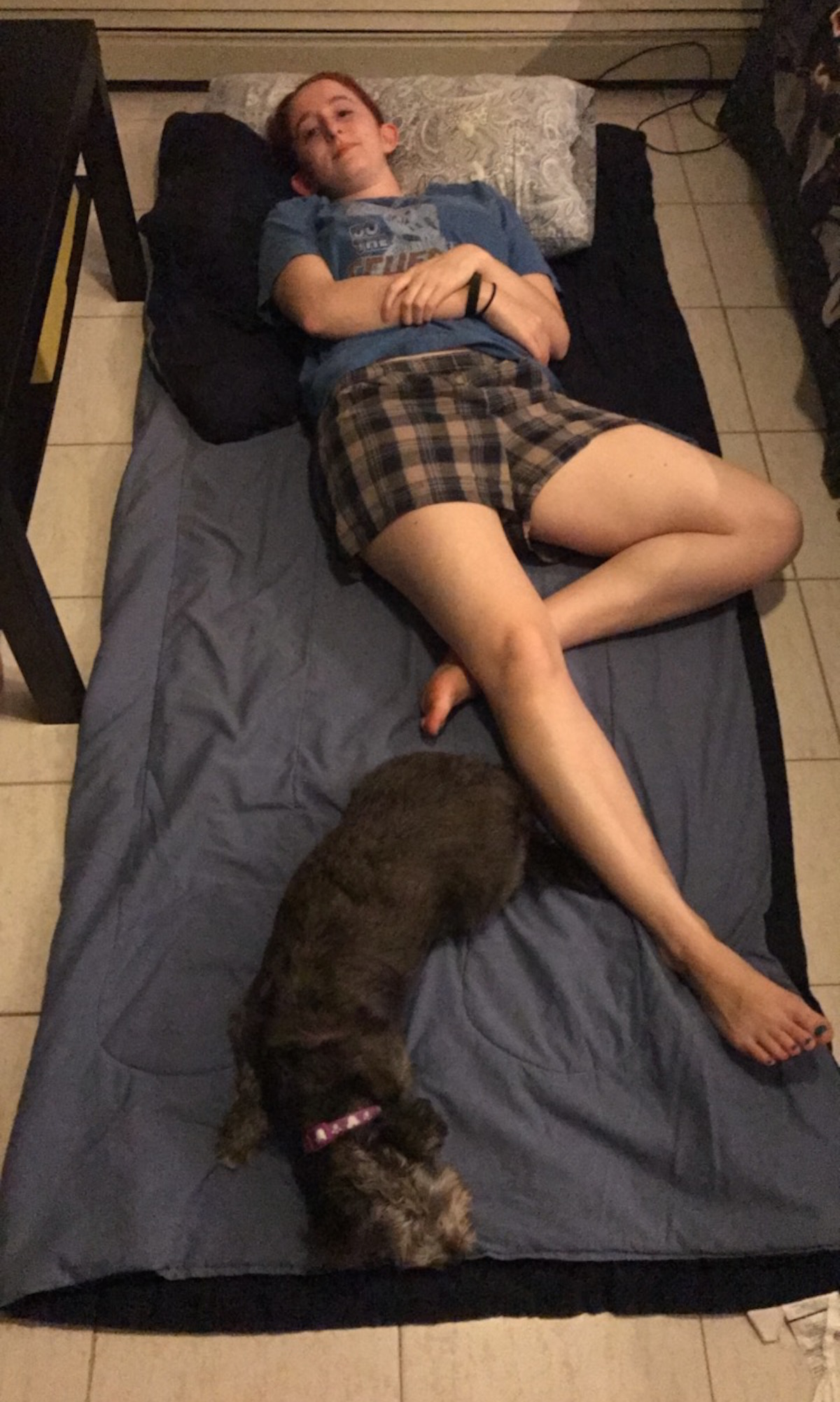
Most people have slept on the floor at some point in their lives — whether it was at an elementary school slumber party or as a house guest of a friend without an extra bed. Usually, you wake up with aches and pains from your head to your hips.
But is sleeping on the floor actually good for you?
Well, it can be. According to New Health Advisor, "Sleeping on a hard surface can be very beneficial for your back and spine, because it helps keep your back straight while lying down for extended periods of time."
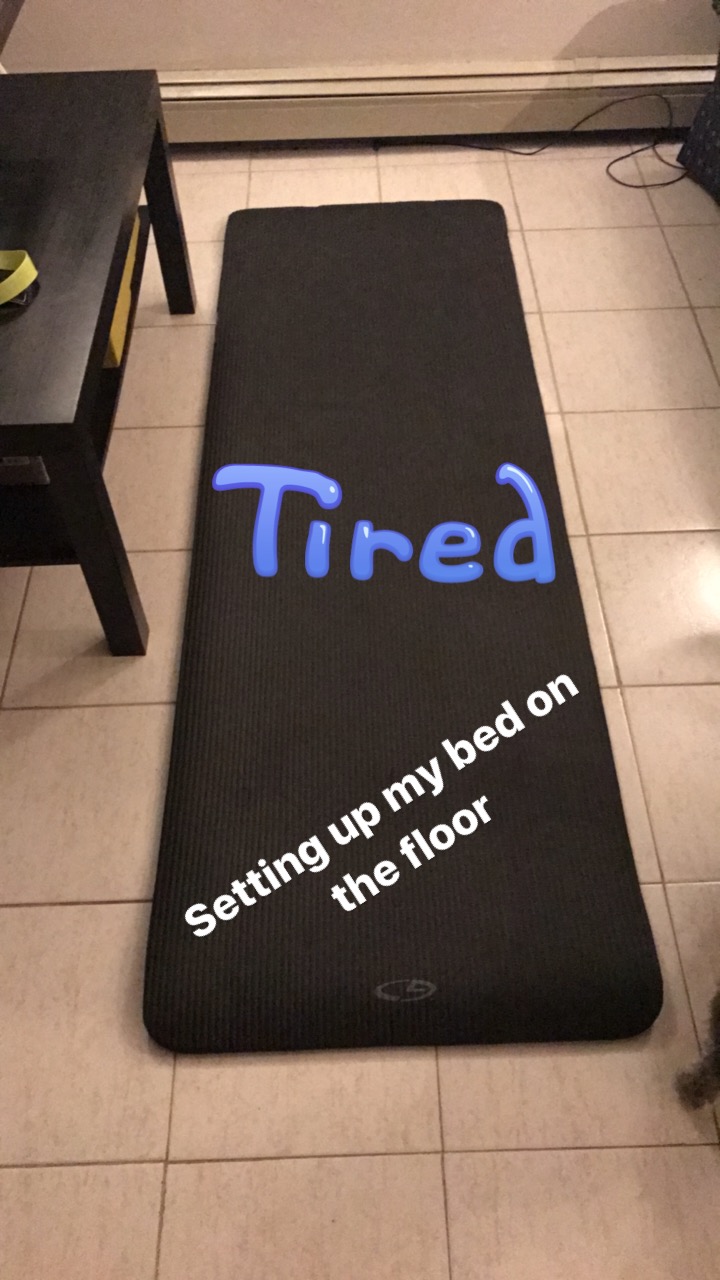
Unfortunately, there isn't much scientific information about the benefits of sleeping on the floor, but there is plenty of anecdotal evidence suggesting that it can help with back pain.
According to Beautiful On Raw, there are actually multiple other benefits to sleeping on your back, including better posture, deeper breathing, aligned hips and shoulders, and increased tranquility.
As comfortable as mattresses may be, they can apparently throw your body out of alignment. "Hard surfaces naturally align the head, neck, and spine, allowing the body to make the most of its eight hours of rest and repair," explains Sleep Sugar.
How To Sleep On The Floor
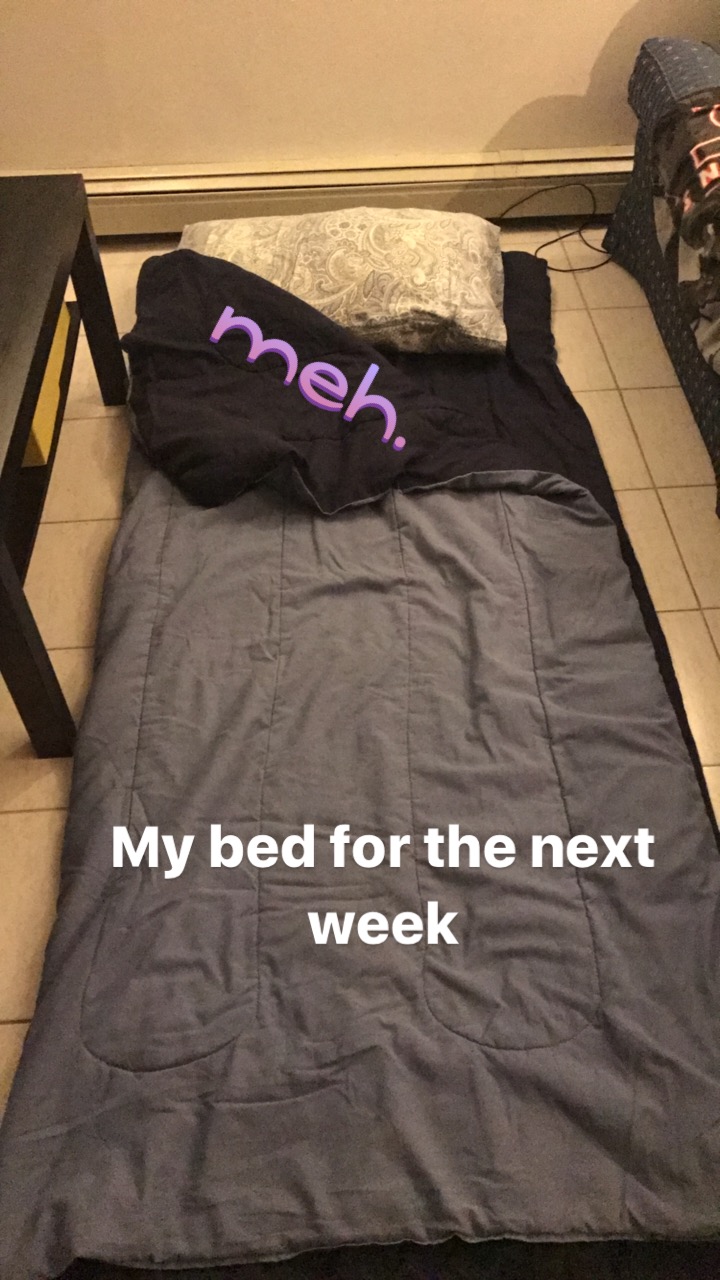
There are a variety of suggestions for ways to sleep on the floor, ranging from sleeping directly on a hard wooden surface to sleeping on a mattress pad and blankets.
Some websites recommend easing yourself into sleeping on the floor, while others just tell you to quit your mattress cold turkey.
I decided that I wanted to sleep on the hardest surface I could manage, but since my floor is tile, I knew I wouldn't be able to sleep directly on the floor. Instead, I slept on top of a pilates mat and blanket, with a single thin pillow to keep my spine in alignment.
Sleeping On The Floor Experiment

I won't lie to you — I was not looking forward to sleeping on the floor. I spent weeks saying, "Tonight's the night," but every Sunday night, I'd convince myself that the next week was probably a better time to start the experiment.
I was looking forward to having better posture and a refreshed spine — I thought it might help with my back pain, but I just really love my bed.
After weeks of putting it off, I finally decided to bite the bullet and set up my floor mat.
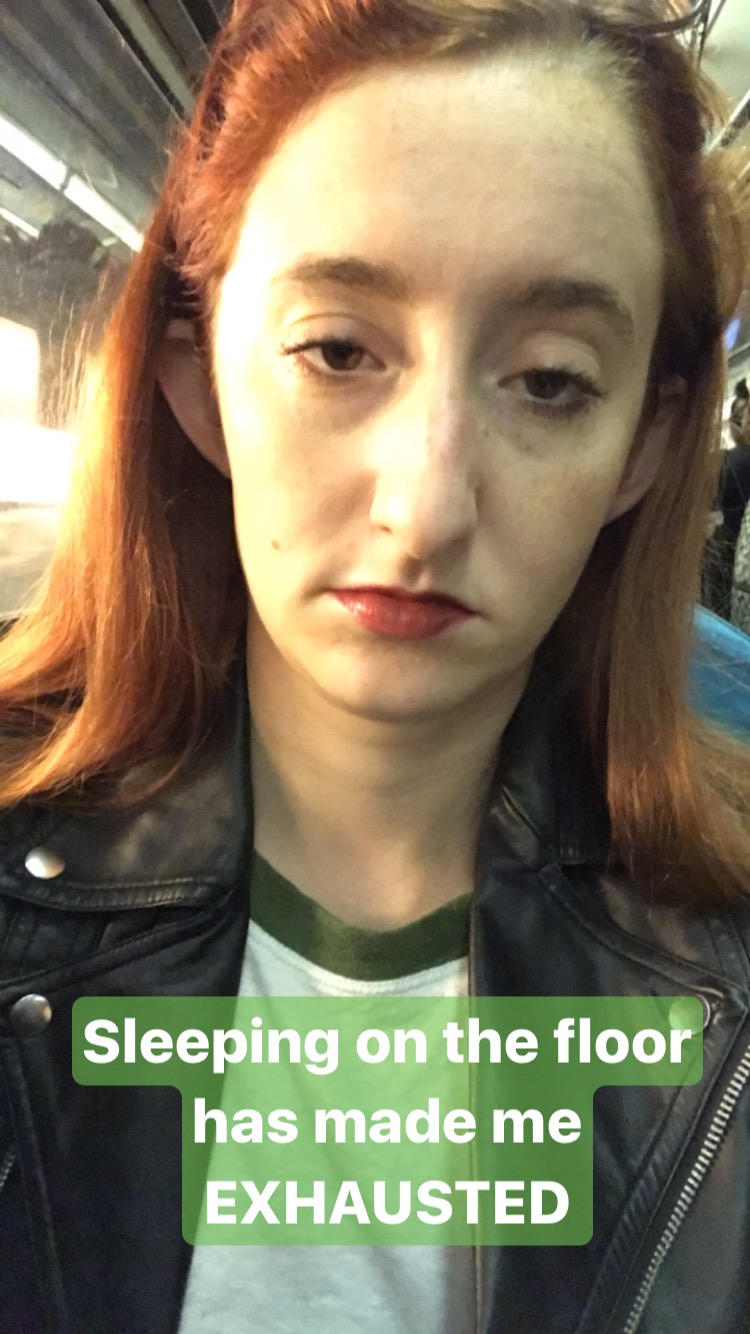
Lying down on my "bed" the first night was both exciting and disappointing. I was anticipating feeling some benefits from the experiment, but I was also sad that I wouldn't be able to sleep in my bed for the next five days.
I knew the thing I would struggle with most would be sleeping on my back, which is the best way to keep your spine aligned. I normally sleep on my side or stomach, so I knew it would be hard to keep from rolling over.

The first night was pretty rough — I didn't sleep particularly well, and when I woke up in the morning I was totally exhausted. My neck and back were really sore, and I could barely convince myself to get up and get dressed.
I'd read that the first few days would probably be pretty bad — it would get worse before it got better — so I wasn't too surprised by the increase in pain.
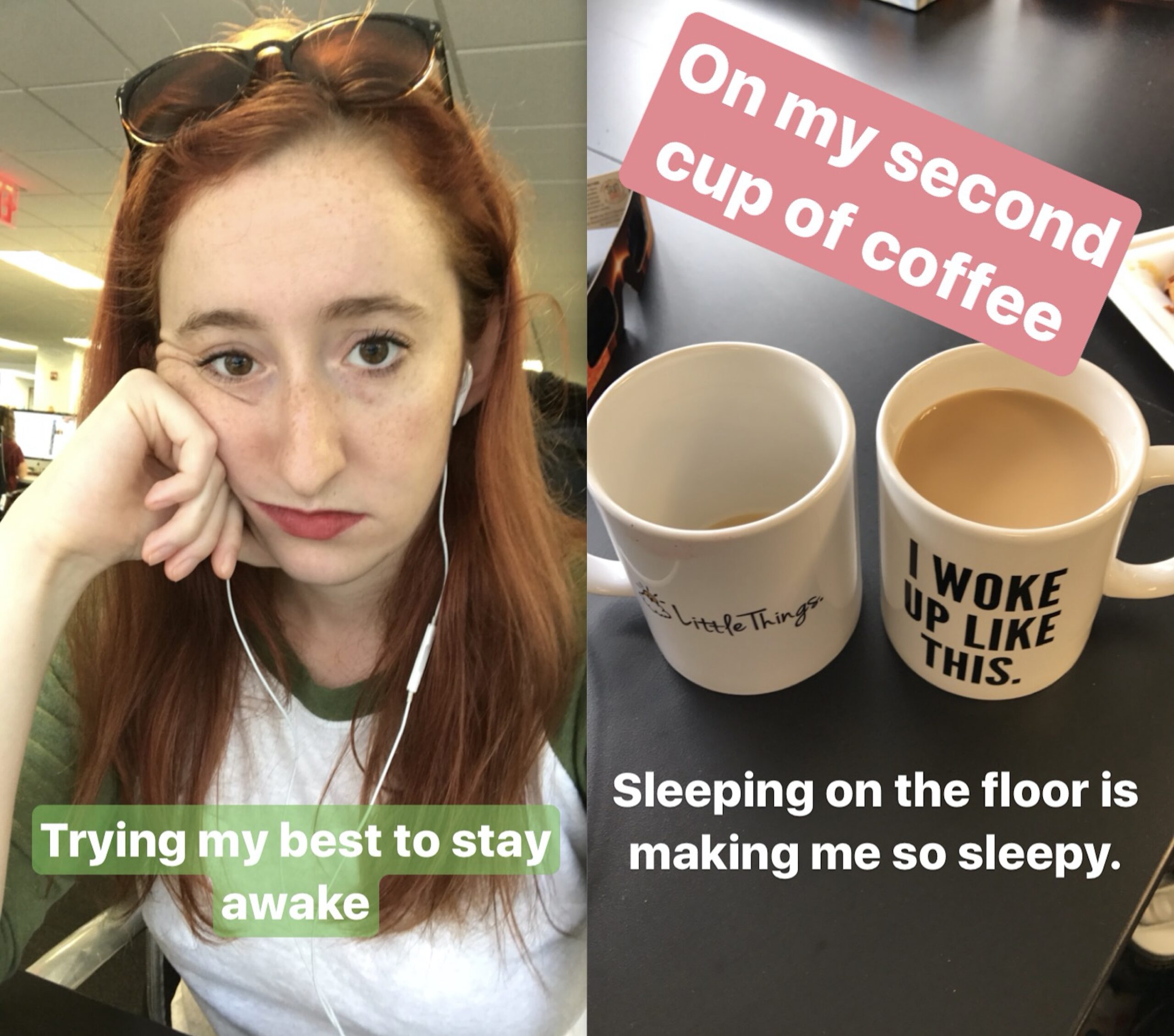
The second night I slept slightly better, and I didn't have much pain when I woke up in the morning. I was still completely exhausted, but I felt a little better.
I definitely wasn't excited to sleep on the floor the third night, but I was surprised that when I woke up, I actually felt good. My back and neck weren't sore — in fact, my spine felt kind of refreshed.
I still wasn't sleeping well, but I was starting to feel the benefits in my back.
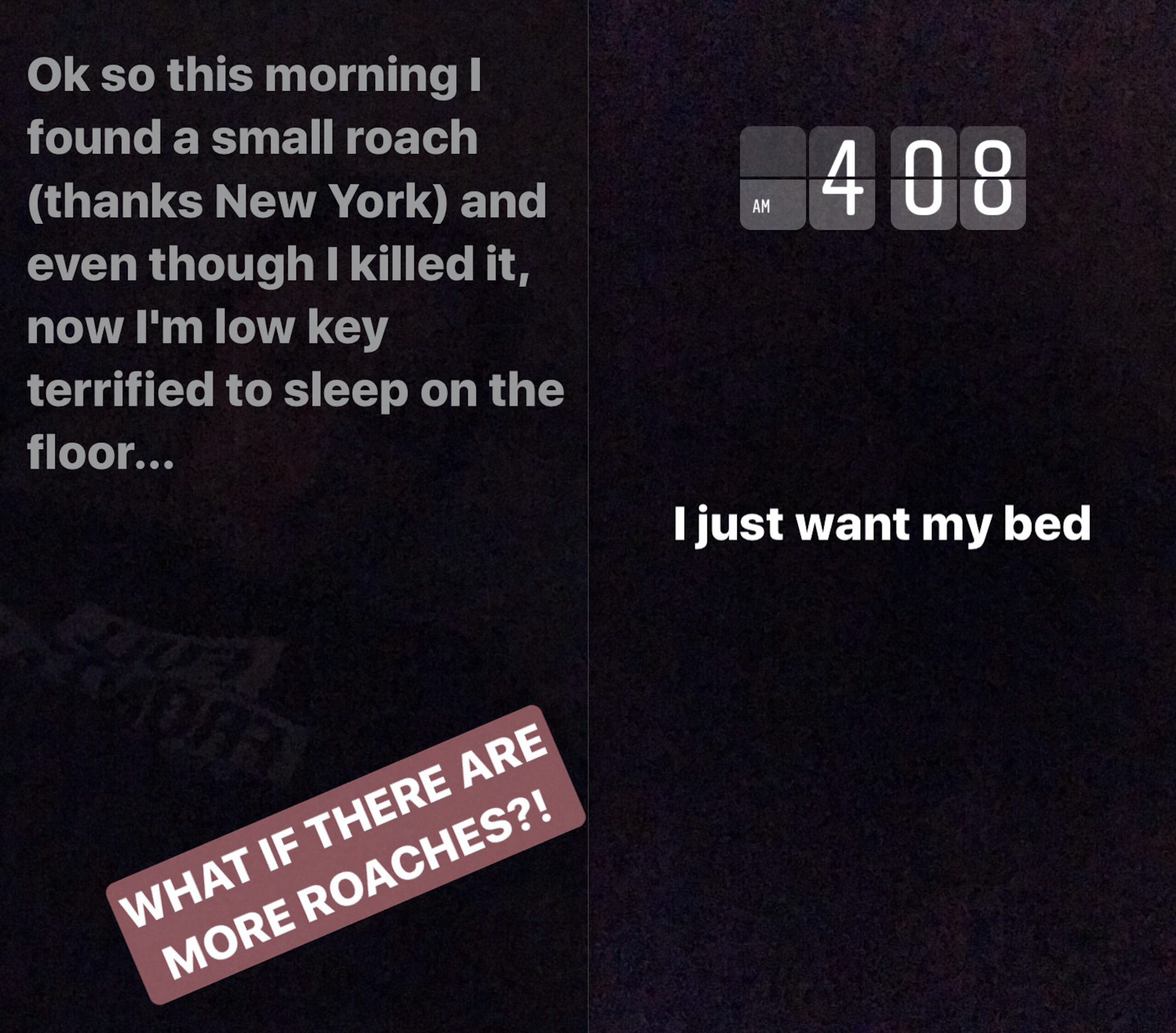
For the final two nights, I had a similar experience — I didn't sleep very deeply, but my spine felt longer, more relaxed, and even less painful.
Each night, I slept pretty well from 11 p.m. until about 4 a.m., then I would toss and turn until my alarm went off.
Sleeping On The Floor: Final Thoughts
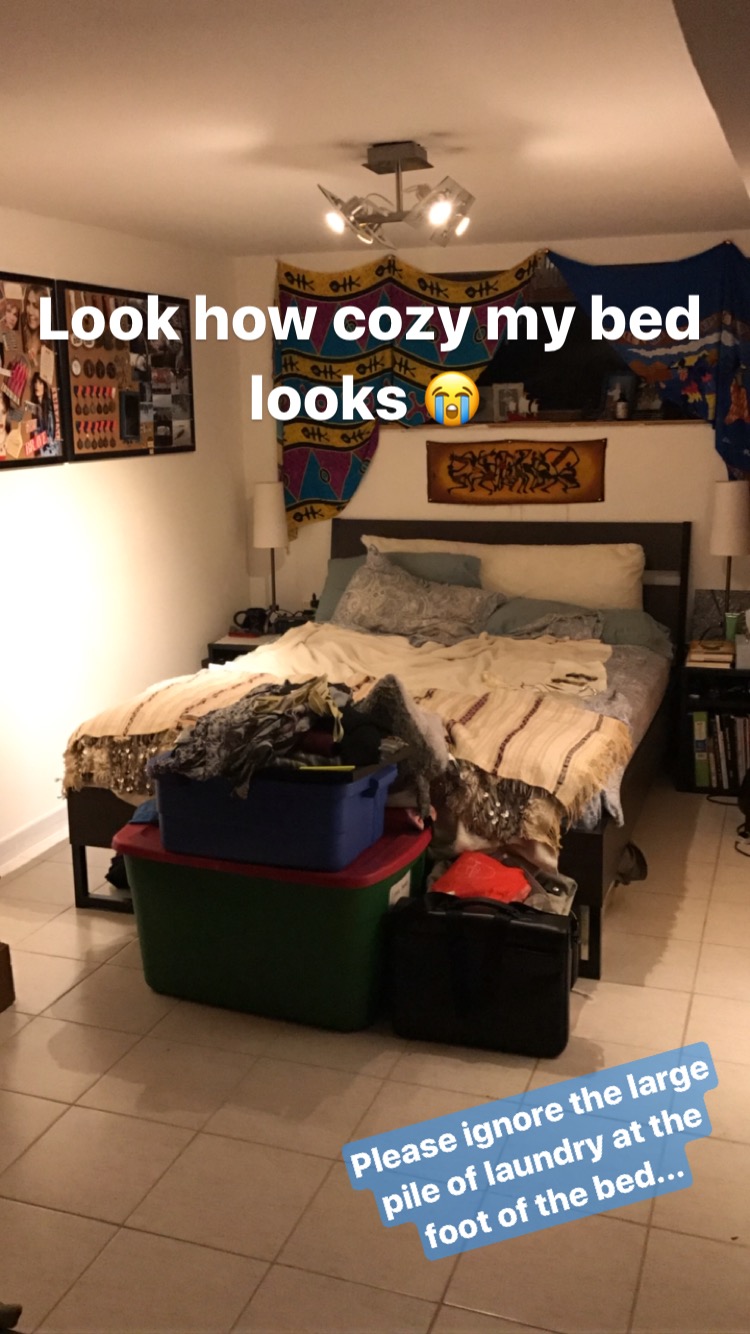
I whined about sleeping on the floor a lot while I was doing it, but I did actually feel the benefits in my neck, back, shoulders, and hips.
Unfortunately, I wasn't able to get a good night's sleep the entire time.

Would I sleep on the floor again? Probably not, but I do see the benefits of stretching out my spine by lying supine on the floor. In the future, if my back pain starts acting up, I'll probably lie on the floor for some time, but not sleep there.
Would I recommend sleeping on the floor to a friend? If you're a deep sleeper with back pain, sleeping on the floor might be a good way to relax your muscles and ease your pain. If you're a light sleeper, trying to sleep on the floor probably isn't the best option for you — but you should try lying flat on your back from time to time to relieve your pain.
If you ever experience back pain, please SHARE this article with your friends!




